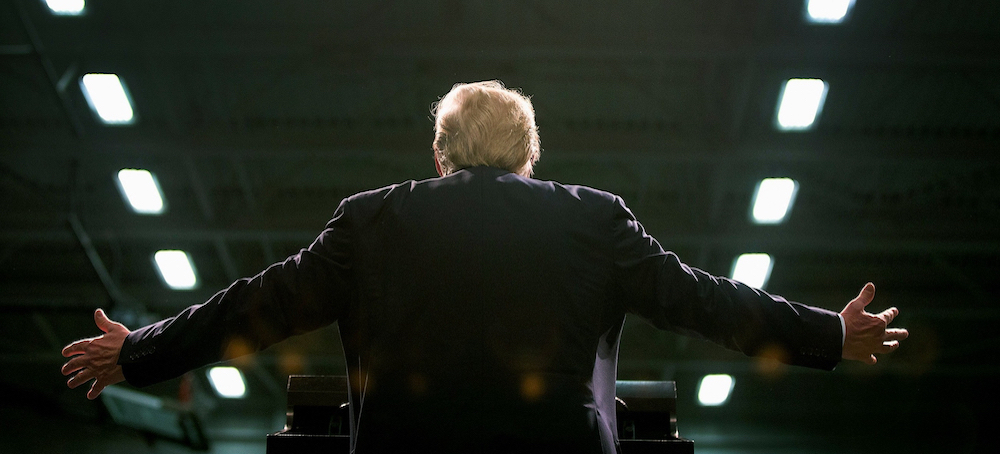Trump’s Day One Plans: Pardon January 6 Rioters, Try to End Birthright Citizenship
Peter Wade Rolling Stone Donald Trump. (photo: Intercept)
Donald Trump. (photo: Intercept)
The former president said on the campaign trail that he wants to be a "dictator" on his first day back in office
In a wide-ranging interview on NBC’s Meet the Press, Trump’s first on a major network since being elected, moderator Kristen Welker asked whether he plans to pardon himself. Trump said he hadn’t pardoned himself in 2020 because “a very specific lawyer” who he wouldn’t name told him, “Sir, if you pardon yourself, you’re going to look guilty, and you did nothing wrong.”
He then said that former Rep. Liz Cheney and Democratic Rep. Bennie Thompson “should go to jail” along with “everybody” else on the Jan. 6 committee. He then said his administration is “going to look at individual cases” of Jan. 6 rioters in order to pardon them on his “first day” back in office.
“I’m looking first day,” he said, adding, “They’ve been in [prison] for years, and they’re in a filthy, disgusting place that shouldn’t even be allowed to be open.”
In addition to the pardons, Trump said he would try to use executive action to end the constitutional right to birthright citizenship, as he had promised on the campaign trail. The 14th Amendment states “All persons born in the United States are citizens.”
Welker asked whether banning birthright citizenship on the first day of his presidency is still his plan.
“Yeah. Absolutely,” Trump said.
“Can you get around the 14th Amendment with an executive action?” the moderator questioned.
“Well, we’re going to have to get it changed. We’ll maybe have to go back to the people. But we have to end it,” Trump said.
“We’re the only country that has it, you know,” he added.
But that’s a lie. Many nations around the globe protect jus soli, Latin for “right of the soil,” granting citizenship to those born within their borders. At least thirty countries recognize birthright citizenship.
But Trump continued his lie. “You know we’re the only country that has it. Do you know if somebody sets a foot, just a foot, one foot, you don’t need two, on our land, ‘Congratulations you are now a citizen of the United States of America.’ Yes, we’re going to end that because it’s ridiculous.”
“Through executive action?” Welker asked.
“Well, if we can, through executive action,” Trump said before claiming he intended to end birthright citizenship during his first term “but then we had to fix Covid first.”
Trump could certainly try to end birthright citizenship with executive action, but it wouldn’t be constitutional.
“No president has the authority to eliminate or modify a constitutional amendment. Is it possible that the new president will issue an executive order to this effect? Yes, but such an action would be blatantly unconstitutional,” said Michael LeRoy, Labor and Employment Relations Alumni Professor and immigration law expert at the University of Illinois Urbana-Champaign.
“Litigation is a certainty,” American Civil Liberties Union attorney Omar Jadwat told NBC News. “It’s directly in the teeth of the 14th Amendment. It would essentially be an attempt to tear down one of the core constitutional protections that has been a key part of our country.”
But, of course, just because it’s unconstitutional doesn’t mean Trump won’t try to do it.



